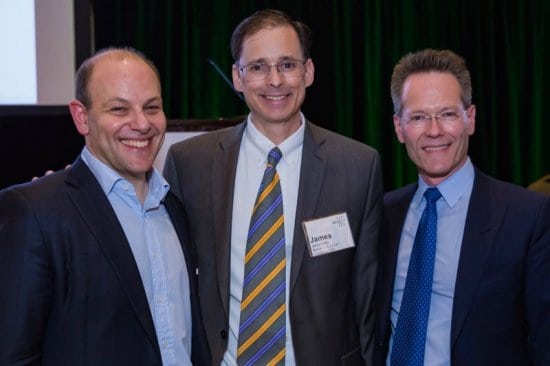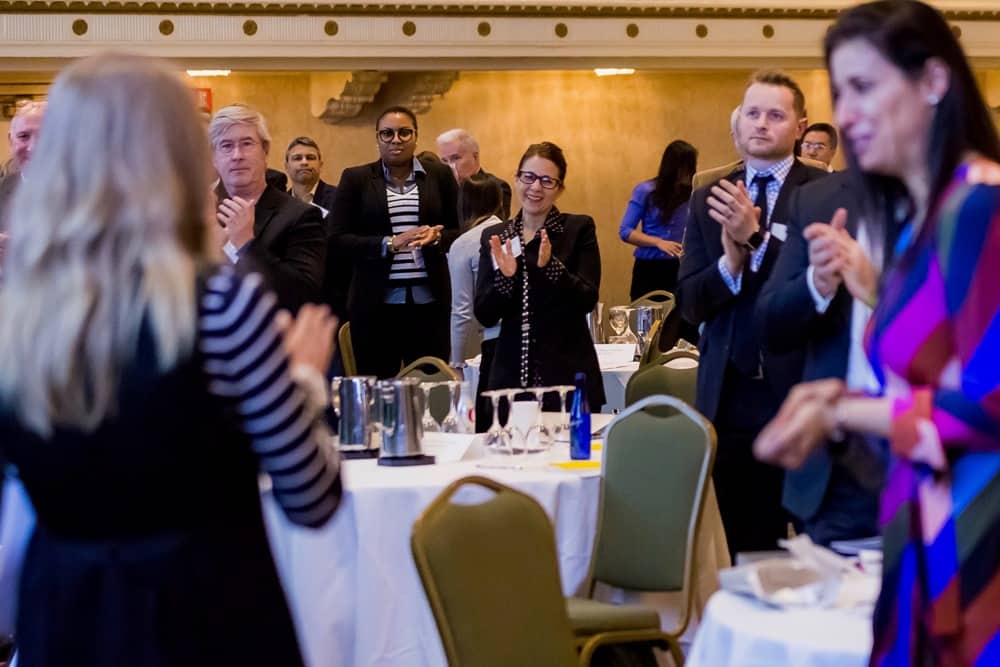On February 6-8, experts and stakeholders from across the cancer immunotherapy spectrum—from patients to doctors to researchers to investors—will convene at the Crowne Plaza Times Square in New York City for the fifth annual Immuno-Oncology 360° (IO360) conference.
Co-chaired once again by GlaxoSmithKline’s (GSK) Axel Hoos, MD, PhD, the National Cancer Institute’s (NCI) James L. Gulley, MD, PhD, and Citi’s Andrew Baum, MD, the 2019 meeting seeks to build on the progress made in previous years that has helped to establish a truly comprehensive network in the field of immuno-oncology.

By bringing together doctors, researchers, patients, executives, and investors under one roof, the three-day conference aims to allow them to learn from each other’s diverse perspectives through thought-provoking discussions and, ultimately, pave the way for the development of innovative solutions to some of the field’s most pressing challenges. Overall, the meeting will consist of 11 plenary sessions, that include 10 panels discussions and more than 40 expert presentations.
Recently, the Cancer Research Institute (CRI) spoke with Dr. Hoos, who is also a member of the CRI Scientific Advisory Council, to get a better idea of what to expect at this year’s IO360 conference. In general, the topics that will be highlighted focus on the following six categories:
Basic Biology of Cancer Immunology
At the heart of the science behind cancer immunotherapy lie basic biological questions about the relationship between cancer and the immune system. Just as answering questions about what regulates T cell activity led to the development of the first checkpoint immunotherapies, so the answers to today’s outstanding questions may provide the breakthroughs that lead to the next generation of immunotherapies for cancer.
In particular, Hoos mentioned the instructive lesson of the recent failure of a trial involving an IDO-targeting immunotherapy, noting that it “startled the community… And raised the questions, ’Why did it fail? What’s the biology?’” IO360’s efforts to answer those questions “could be valuable, first to understand IDO, and second to look toward other tumor microenvironment targets that are being investigated and eventually take some lessons to prevent failure.”
Clinical Trials, Biomarkers, and Rational Combinations
Immunotherapy has already proven immensely helpful for subsets of patients with a number of cancer types, but to bring relief to the many patients for whom immunotherapy doesn’t currently work will likely require combination treatments that include immunotherapy. However, with so many immunotherapy agents to choose from, better clinical trial strategies will be needed to figure out which combinations work best for which patients, and biomarkers will be crucial to solving this issue in the most efficient and effective manner.
“Nobody has a perfect recipe for how to use biomarkers in clinical trials yet because we’re still learning what makes sense and what assays to use,” noted Hoos. “There are no perfect answers,” so the plan for IO360 is “to bring the best people together to help advance this topic.”
Cellular Immunotherapies
Cellular immunotherapies such as CAR T cells have demonstrated incredible potential for patients, and have already been approved by the U.S. Food and Drug Administration (FDA) for leukemia and lymphoma. However, efforts to extend their benefits to patients with solid cancers haven’t proceeded as quickly. “That’s a hot topic in immuno-oncology now… And the next frontier is to make cell therapies work in solid tumors,” said Hoos, who believes that the question of how to achieve success with cellular immunotherapies in solid cancers “will be an interesting conversation for a long time to come.”
The Patient Experience
Compared to the cold hard data of laboratory experiments and clinical trial readouts, the perspective of patients has long been overlooked in efforts to advance the field of oncology. Fortunately, especially when it comes to immunotherapy, the patient perspective has recently come to be regarded as another extremely important perspective that will need to be incorporated in order to advance the field and improve our success against cancer.
“You cannot look at medicine anymore in isolation, only from the perspective of the drug makers or the developers. It also has to be seen from the perspective of the physician and the patient. And that makes a more holistic picture… There are so many different experiences that a patient could have.”
Often, these are experiences that none of the other parties in the field may ever consider or even be aware of, as the audience at last year’s IO360 event experienced firsthand with testimony from Stephanie Joho, a cancer patient. “Her comments last year were fantastic and provided great insight,” said Hoos, “and provided even greater impetus to do better trials and to improve the patient experience in clinical trials, which I hope we can continue to build on.”

The Importance of Investment
In addition to increasing patient representation, for the second year IO360 will bring another group of stakeholders into the conversation, one that is often excluded and isn’t always portrayed positively: the investors who provide the financial fuel for the field of immuno-oncology.
“I still believe that you cannot ignore other components of the ecosystem in which we all work, and those are funders and investors and analysts,” Hoos said. “Half of what goes on in the space is driven by business deals and funding considerations for new science, so this has to be covered.” Additionally, “the people that work in those places—venture capital, pharma, and so on—they’re not much different scientifically speaking or in terms of objective intent from what you find in academia.”
“It’s an ecosystem. It’s a community that we serve together, which is the patient community that cannot be served by just one party alone. We all are in this ecosystem together.” As Hoos stated previously, “We can’t be successful if we isolate one over the other.”
Collaborations
In order to most effectively serve that patient community, collaboration between the different groups is crucial, and is something that IO360 has always strived to promote. “That has been at the forefront of what we do for a very long time… We’ve made significant inroads in collaboration among oncology stakeholders since we started.”
This cross-specialty collaboration is so important, especially in the field of cancer immunology and immunotherapy, “because it’s complicated, because people have different technologies, because you need different perspectives and scientific knowledge to advance the field. So consequently, collaboration has become the hallmark of immuno-oncology.”
In that regard, IO360 has become a space unlike any other, where the entire spectrum of the IO ecosystem can interact with each other, learn from each other, and, most importantly use their distinct insights and expertise to ensure that the most promising therapeutic strategies are delivered to the patients who can benefit from them most.
Learn more about the 2019 conference’s agenda and be sure to check back in the coming weeks for our recap of the highlights from the 2019 IO360 conference!

